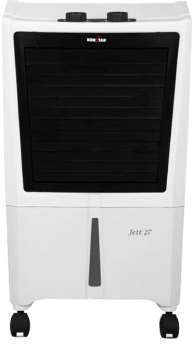How Hard Water Can Shorten Your Water Heater’s Life (and What to Do About It)

Imagine this: You’ve just settled into a cozy home, your kitchen gleaming and your living spaces perfectly arranged. Yet, there’s a hidden threat lurking in your plumbing that could slowly undermine your comfort—hard water. This seemingly small issue can have a silent but significant impact on your water heater, compromising its efficiency and shortening its lifespan. Curious about how this works and what you can do to combat it? Read on to uncover the effects of hard water on your geyser and learn practical solutions to keep your water heater running smoothly.
What is Hard Water, and Why is it a Problem?
Hard water contains high levels of minerals, such as calcium and magnesium, which, while harmless to drink, can create major headaches for your water heater. When hard water heats up, these minerals don’t dissolve; instead, they settle at the bottom of your water heater tank, forming a stubborn layer of sediment. This sediment can lead to several issues:
- Reduced Efficiency: The sediment acts as an insulating layer, making it harder for your geyser to heat water effectively. This forces your water heater to work harder, leading to higher energy bills.
- Increased Wear and Tear: With added strain on the system, your water heater experiences accelerated wear and tear, which can significantly shorten its lifespan.
- Frequent Repairs: Sediment build-up can lead to clogs and other malfunctions, resulting in more frequent repairs and maintenance.
Signs That Hard Water is Affecting Your Water Heater
How can you tell if hard water is causing issues for your water heater? Watch for these warning signs:
- Reduced Hot Water Output: If you notice a decrease in the amount of hot water or temperature inconsistencies, sediment build-up could be the cause.
- Strange Noises: Banging or popping sounds from your geyser may indicate sediment being heated and expanding inside the tank.
- Discoloured Water: Rusty or discoloured water often signals that sediment or scale is affecting your water heater.
What Can You Do About It?
Preventing and managing the impact of hard water on your water heater is crucial for maintaining its performance. Here’s how you can address the issue:
- Install a Water Softener: A water softener can effectively remove calcium and magnesium from the water before it enters your water heater, reducing sediment build-up and improving efficiency.
- Regular Flushing: Flushing your water heater on a regular basis helps remove accumulated sediment, maintaining the unit’s efficiency and prolonging its life.
- Anode Rod Maintenance: The anode rod helps protect the tank from rust and corrosion. Regularly inspecting and replacing it as needed ensures ongoing protection.
- Professional Inspections: Periodic inspections by a professional can identify and address hard water issues early, preventing potential damage and ensuring your geyser remains in top shape.
Conclusion: Safeguard Your Water Heater from the Silent Threat
Hard water might be an invisible adversary, but its effects on your water heater are all too real. By understanding the impact of hard water and taking proactive steps—such as installing a water softener, performing regular maintenance, and staying vigilant—you can protect your geyser and ensure its efficient performance. Don’t let this subtle problem undermine your home’s comfort. With the right knowledge and tools, you can keep your best water heater functioning optimally and enjoy a steady supply of hot water without worry.
Also Read: How Your Water Heater Can Keep Up with Changing Weather
Kenstar has a strong service support network across India to ensure prompt service and maintenance of your appliances, and 350+ service centers across India.
Kenstar has a strong service support network across India to ensure prompt service and maintenance of your appliances, and 350+ service centers across India.
www.kenstar.in/service-centres.
Email your service request to customercare@kenstar.in




